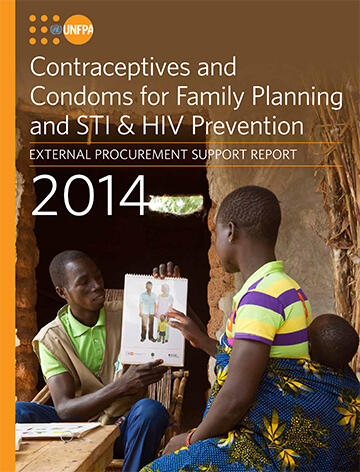Access to reproductive health, including family planning, is recognized as a human right. Contraceptives procured through external support constitute a significant contribution to reproductive health, including family planning and, through the dual protection provided by condoms, the prevention of sexually transmitted infections (STIs), including HIV. Support from donors is critical to improving and ensuring the security of essential contraceptives and other life-saving reproductive health commodities. However, in 2014, contributions from donors for contraceptives decreased by some $35.4 million (10 per cent) compared with 2013, meaning that support has fallen to levels below those registered in 2012, the year of the London Family Planning Summit.
This report, updated annually since 1990, is a rich source of data for development that can drive good planning for contraceptive supply, advocacy and resource mobilization. The report aims to enhance coordination among donors, improve partnerships between donors and national governments, and mobilize the resources needed to accelerate progress towards universal access to sexual and reproductive health, and in particular to reduce the unmet need for family planning. The report also analyses data received from individual donors and partner organizations about the support they have provided directly to developing countries for the procurement of contraceptives and condoms.

